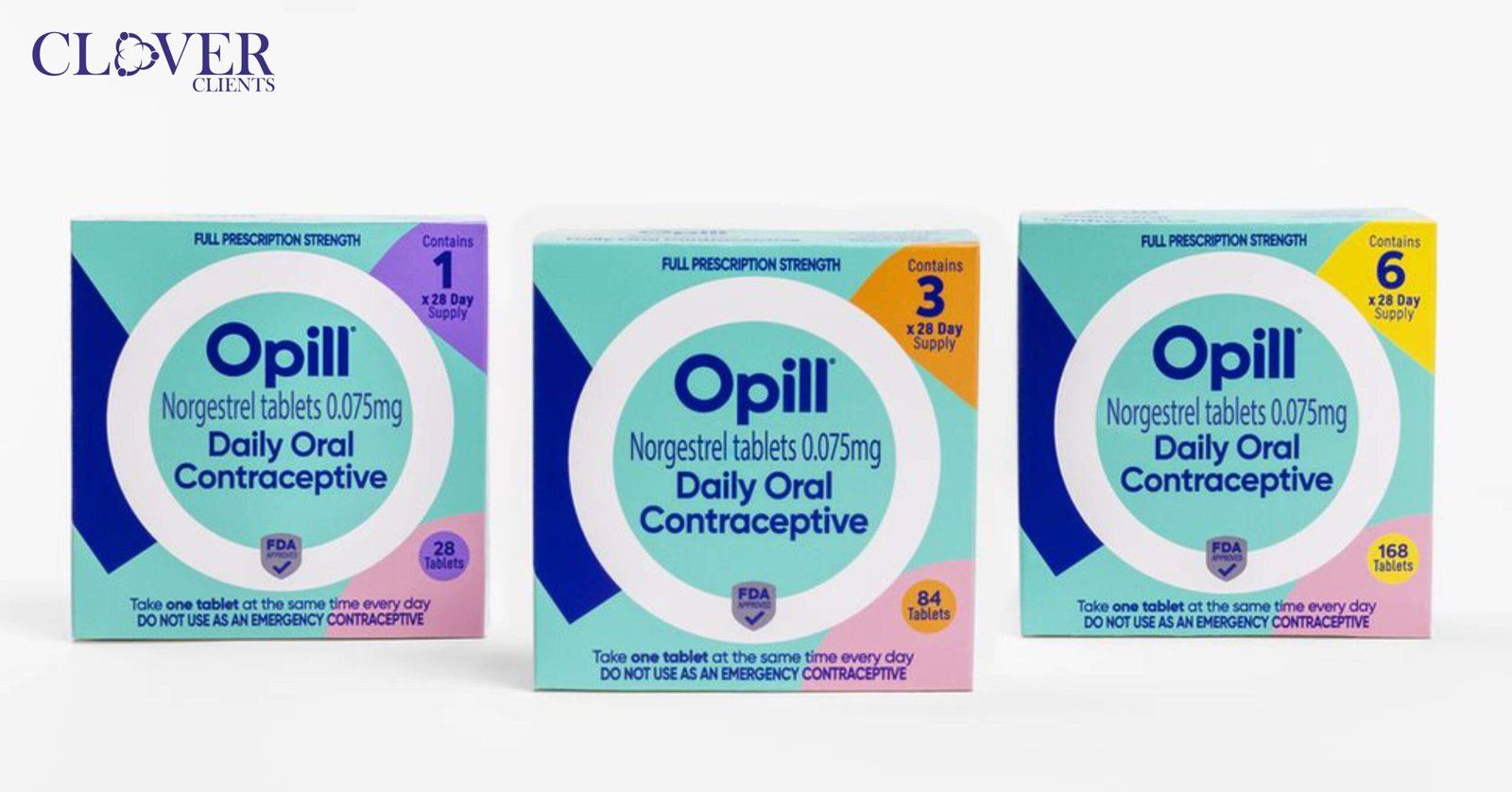The Post-Roe Landscape: Examining The Role Of Over-the-Counter Birth Control

Table of Contents
Increased Access to Over-the-Counter Birth Control: A Game Changer?
Increased access to over-the-counter (OTC) birth control methods could be a pivotal factor in mitigating the consequences of restricted abortion access. Making contraception more readily available offers several potential benefits:
- Reduced Unintended Pregnancies: Improved access to birth control, regardless of socioeconomic status or geographical location, could significantly decrease the number of unintended pregnancies. This is particularly crucial in states with restrictive abortion laws.
- Improved Reproductive Health Outcomes: Easier access to contraception empowers individuals to make informed decisions about their reproductive health, leading to better overall health outcomes. This includes reduced instances of unsafe abortions and related complications.
- Lower Abortion Rates: While not a replacement for abortion access, increased access to effective contraception can substantially reduce the need for abortion services. This is a key factor in addressing the concerns arising from the post-Roe environment.
Potential Benefits:
- Improved convenience and affordability: OTC birth control eliminates the need for doctor's appointments and prescriptions, making it more accessible and less expensive for many.
- Reduced reliance on healthcare providers for contraception: This eases the burden on already strained healthcare systems and provides greater autonomy for individuals.
- Potential for decreased healthcare costs in the long run: Fewer unintended pregnancies and related complications can translate to substantial savings in healthcare expenditures.
Counterarguments:
While the potential benefits are significant, concerns exist regarding potential misuse, the need for proper education and counseling, and the role of insurance coverage. Ensuring access to accurate information and support services alongside OTC availability is vital to maximizing its positive impact and minimizing potential risks.
Types of Over-the-Counter Birth Control and Their Effectiveness
Several birth control methods are currently available over-the-counter, each with varying effectiveness and potential side effects:
- Condoms: Condoms are highly accessible, relatively inexpensive, and offer protection against both pregnancy and sexually transmitted infections (STIs). Their effectiveness relies heavily on correct and consistent use.
- Emergency Contraception (Morning-After Pill): Emergency contraception, like Plan B, can prevent pregnancy after unprotected sex but is most effective when taken within 72 hours. Accessibility to emergency contraception is crucial, particularly in light of restricted abortion access.
- Other potential future OTC options: Research and development continue to explore the possibility of making additional contraceptive methods available over-the-counter, potentially including certain types of hormonal contraception.
The Role of Education and Public Health Initiatives
Comprehensive sex education is paramount to ensuring the safe and effective use of OTC birth control. This includes:
- Importance of accurate information on contraceptive efficacy: Individuals need reliable information about each method's effectiveness, proper use, and potential side effects.
- Addressing misconceptions and misinformation surrounding birth control: Combating misinformation through targeted public health campaigns is critical to responsible use.
- Governmental and NGO roles in promoting awareness: Governmental bodies and non-governmental organizations (NGOs) have a crucial role to play in providing accurate information, promoting responsible use, and addressing potential barriers to access.
The Legal and Political Landscape Surrounding OTC Birth Control
The legal and political landscape surrounding access to contraception, especially OTC birth control, is complex and constantly evolving:
- State-level variations in access to contraception: Access to various contraceptive methods varies significantly across states, influenced by differing regulations and political climates.
- The impact of Supreme Court decisions on contraceptive access: The Supreme Court's decisions on reproductive healthcare have significant implications for contraceptive access, shaping the legal framework within which OTC birth control operates.
- Potential future legislative changes: Ongoing political debates and lobbying efforts continue to shape the future of contraception access, potentially influencing the availability of OTC options.
The Future of Over-the-Counter Birth Control in a Post-Roe America
Increased access to over-the-counter birth control offers a significant opportunity to improve reproductive health outcomes in the post-Roe era. However, realizing the full potential of OTC contraception requires a multifaceted approach, combining increased accessibility with comprehensive education and supportive public health initiatives. Addressing concerns about misuse and ensuring equitable access across all socioeconomic groups and geographic locations are crucial. Responsible use, accurate information, and supportive policies are vital for maximizing the positive impact of over-the-counter birth control.
Take control of your reproductive health by understanding your options for over-the-counter birth control and becoming an advocate for increased access to reproductive healthcare.

Featured Posts
-
 The Post Roe Landscape Examining The Role Of Over The Counter Birth Control
Apr 22, 2025
The Post Roe Landscape Examining The Role Of Over The Counter Birth Control
Apr 22, 2025 -
 Chainalysis Acquires Alterya Blockchain Meets Ai
Apr 22, 2025
Chainalysis Acquires Alterya Blockchain Meets Ai
Apr 22, 2025 -
 Trumps Supreme Court Defense Of Obamacare A Boost For Rfk Jr
Apr 22, 2025
Trumps Supreme Court Defense Of Obamacare A Boost For Rfk Jr
Apr 22, 2025 -
 Fp Video Deciphering The Bank Of Canadas Interest Rate Hold
Apr 22, 2025
Fp Video Deciphering The Bank Of Canadas Interest Rate Hold
Apr 22, 2025 -
 Trumps Trade Policies And The Future Of American Financial Dominance
Apr 22, 2025
Trumps Trade Policies And The Future Of American Financial Dominance
Apr 22, 2025
Latest Posts
-
 Romantiki Komenti Materialists Premiera Me Ntakota Tzonson Pedro Paskal Kai Kris Evans
May 10, 2025
Romantiki Komenti Materialists Premiera Me Ntakota Tzonson Pedro Paskal Kai Kris Evans
May 10, 2025 -
 Nea Romantiki Komodia Deite To Treiler Ton Materialists Me Ntakota Tzonson
May 10, 2025
Nea Romantiki Komodia Deite To Treiler Ton Materialists Me Ntakota Tzonson
May 10, 2025 -
 El Bolso Preferido De Dakota Johnson Descubre El Exito De Hereu
May 10, 2025
El Bolso Preferido De Dakota Johnson Descubre El Exito De Hereu
May 10, 2025 -
 Prekvapujuca Podobnost Slovenska Herecka A Dakota Johnson
May 10, 2025
Prekvapujuca Podobnost Slovenska Herecka A Dakota Johnson
May 10, 2025 -
 Bolsos Hereu La Marca Catalana Que Conquista A Dakota Johnson Y A Las It Girls
May 10, 2025
Bolsos Hereu La Marca Catalana Que Conquista A Dakota Johnson Y A Las It Girls
May 10, 2025
